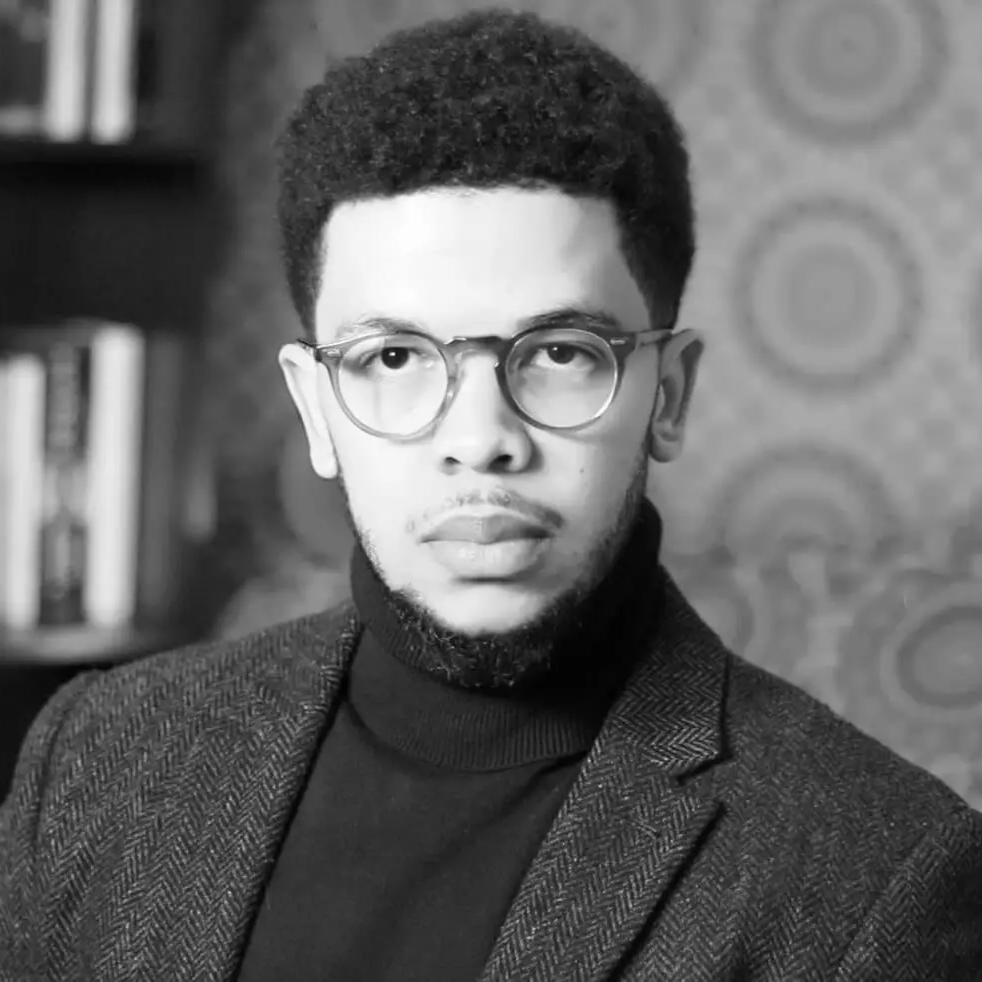
Sizwe Mpofu
Sizwe Mpofu-Walsh (b. 1989)
Dr. Sizwe Mpofu-Walsh is a South African author, activist, musician, and academic. Son of activist and advocate Dali Mpofu and Teresa Oakley-Smith, he grew up in a politically conscious household. Mpofu-Walsh is known for his incisive commentary on politics and social justice. His debut book, Democracy and Delusion (2017), critiques post-apartheid South African politics. A Rhodes Scholar, he’s also active in hip-hop and digital media, using multiple platforms to engage young South Africans. Mpofu-Walsh’s work bridges intellectual and artistic expression, challenging systemic inequalities and advocating for radical transformation. Famously known for his podcast on politics, SMWX, Mpofu-Walsh is one of the most prominent political voices in South Africa today.
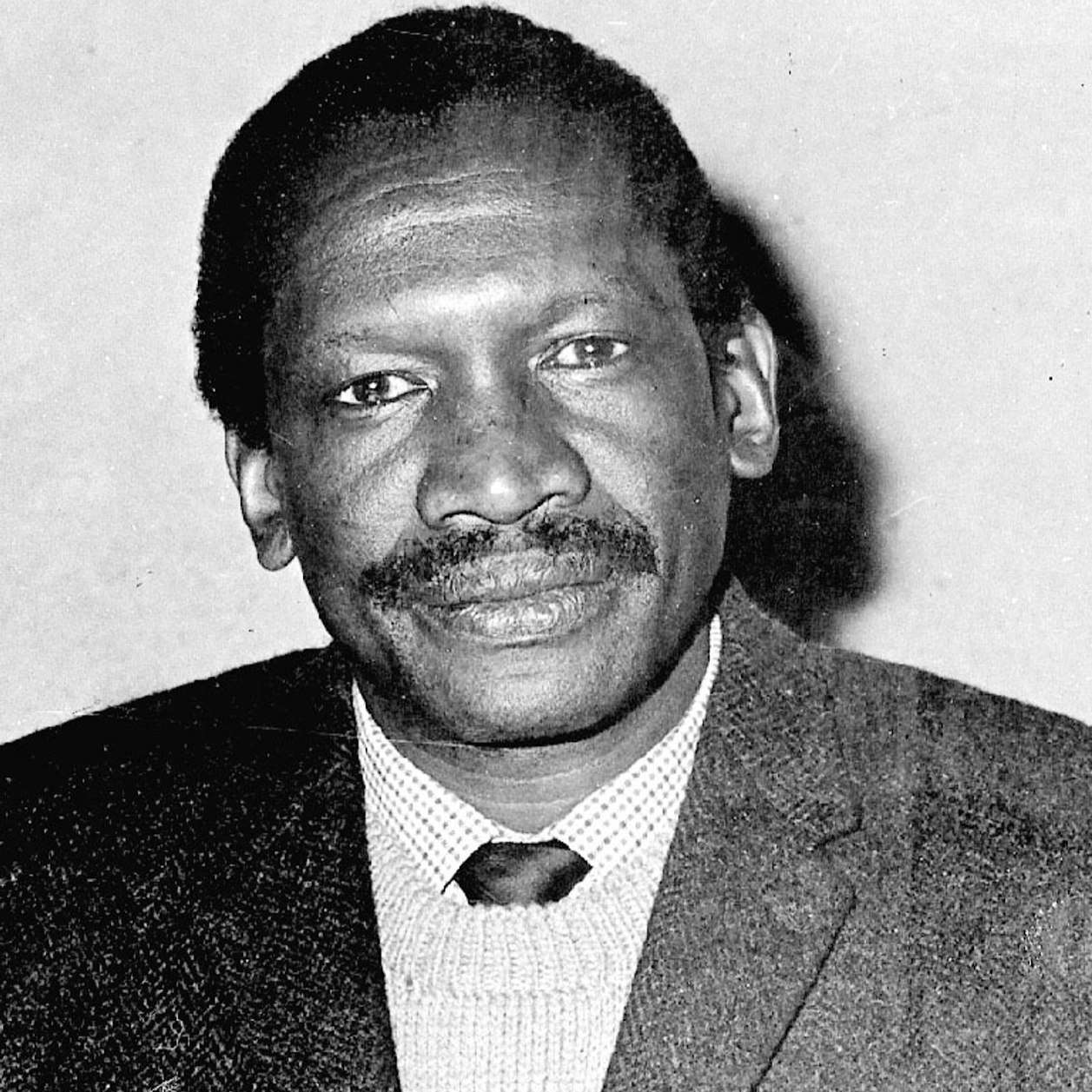
Robert Sobukwe
Robert Sobukwe (1924–1978)
Robert Mangaliso Sobukwe was a teacher, lawyer, and revolutionary leader. Born in Graaff-Reinet, he founded the Pan Africanist Congress (PAC) in 1959, advocating for African self-determination and unity. Sobukwe’s fiery oratory and intellect made him a leading voice against apartheid. Sobukwe's leadership in the 1960 anti-pass law campaign led to his arrest and subsequent solitary confinement under the 'Sobukwe Clause,' which allowed for his indefinite detention without trial. His unwavering commitment to the liberation of African people has left an indelible mark on South Africa's history. Despite harsh repression, to the extent that no record of his voice exists to this day, his unwavering Pan-African ideals continue to inspire movements for liberation and justice. Sobukwe’s profound influence on black consciousness and African nationalism endures as a symbol of resistance. ABM brings his voice alive in these modern times.
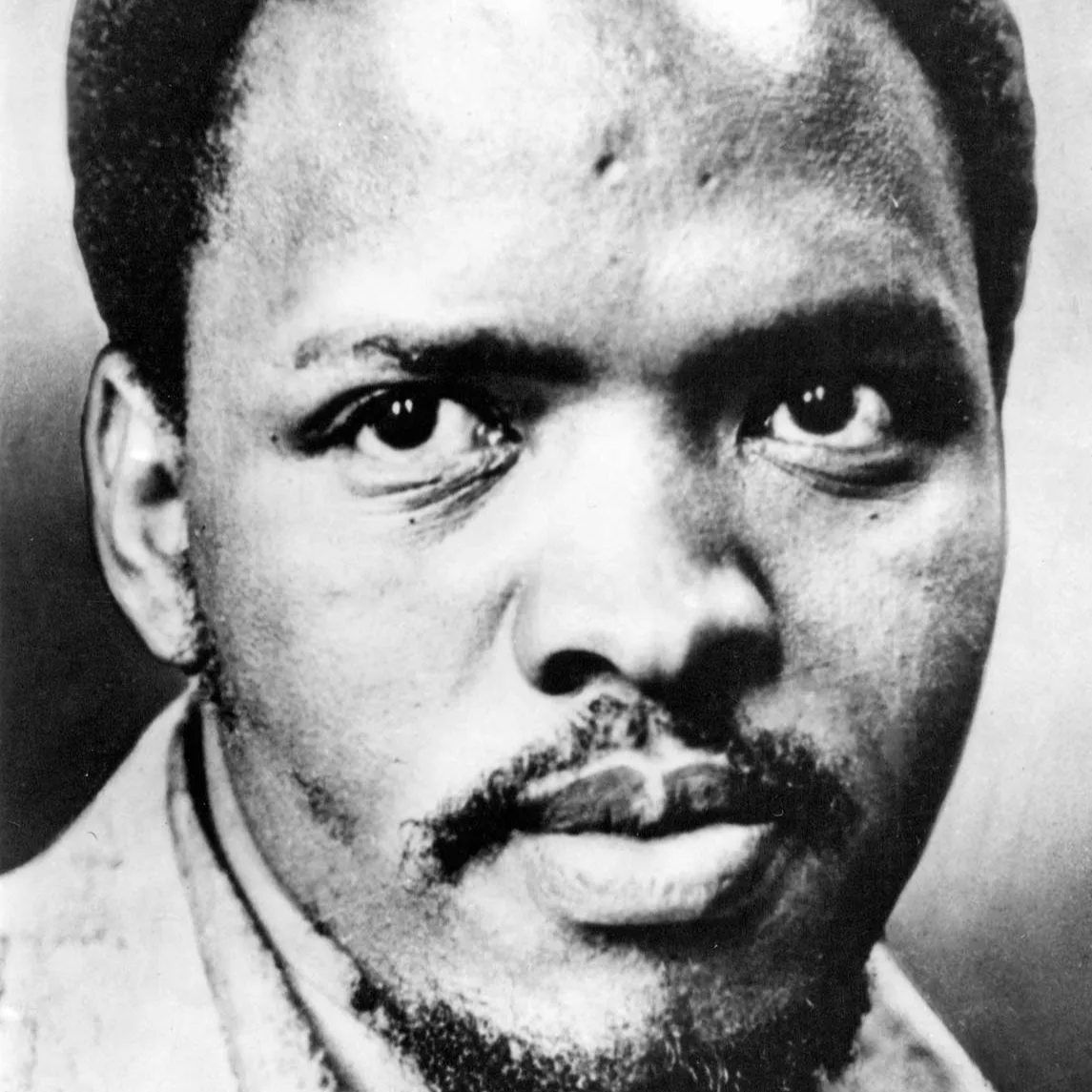
Steve Biko
Steve Biko (1946–1977)
Stephen Bantu Biko, a prominent philosopher and the charismatic leader of the Black Consciousness Movement (BCM) in the 1970s, was born on December 18, 1946, in King William’s Town. While studying medicine at the University of Natal, he founded the South African Students’ Organisation (SASO). Biko's philosophy, emphasizing black pride and psychological liberation, directly confronted the dehumanizing aspects of apartheid. His writings, including We Blacks and The Definition of Black Consciousness found in various SASO publications, some of which are compiled here, inspired many to regain their self-respect and highlighted the damaging effects of apartheid on both black and white South Africans. Tragically, Biko was arrested and tortured by police in 1977, dying in custody at the young age of 30, thus becoming a martyr for freedom. His enduring legacy of self-empowerment and social justice continues to have a significant impact in South Africa and globally.
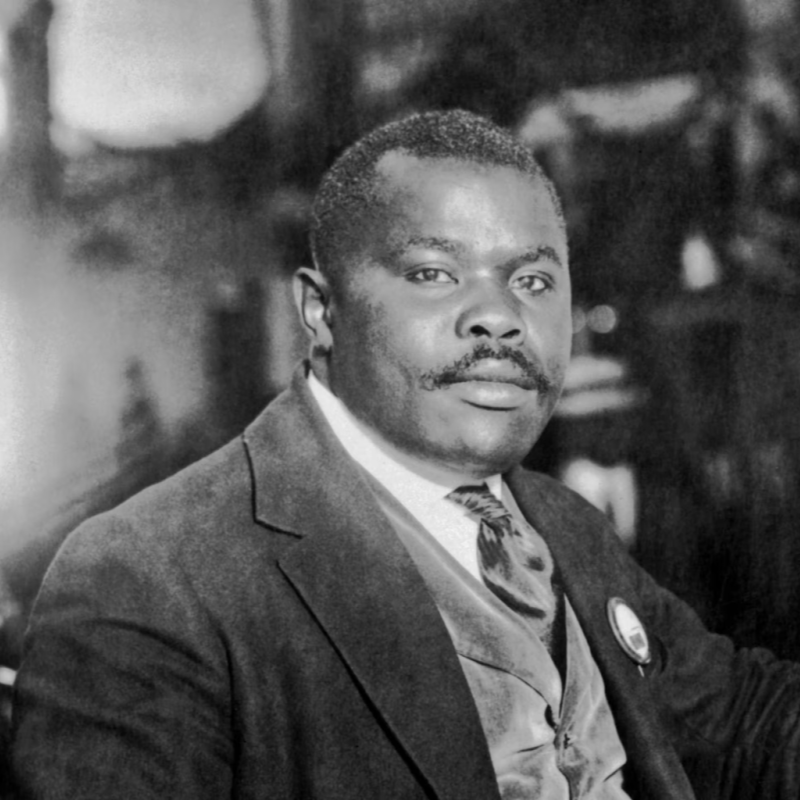
Marcus Garvey
Marcus Garvey (1887–1940)
Marcus Mosiah Garvey, a Jamaican-born Pan-Africanist and black nationalist leader, had a profound influence on African liberation movements, including in South Africa. Founder of the Universal Negro Improvement Association (UNIA), Garvey’s message of black pride, self-reliance, and economic empowerment resonated worldwide. His advocacy for a united Africa and global black identity inspired leaders like Robert Sobukwe and the PAC. Though not South African by birth, Garvey’s vision of African redemption and cultural renaissance significantly shaped the ideological landscape of black consciousness and anti-colonial movements across Africa.
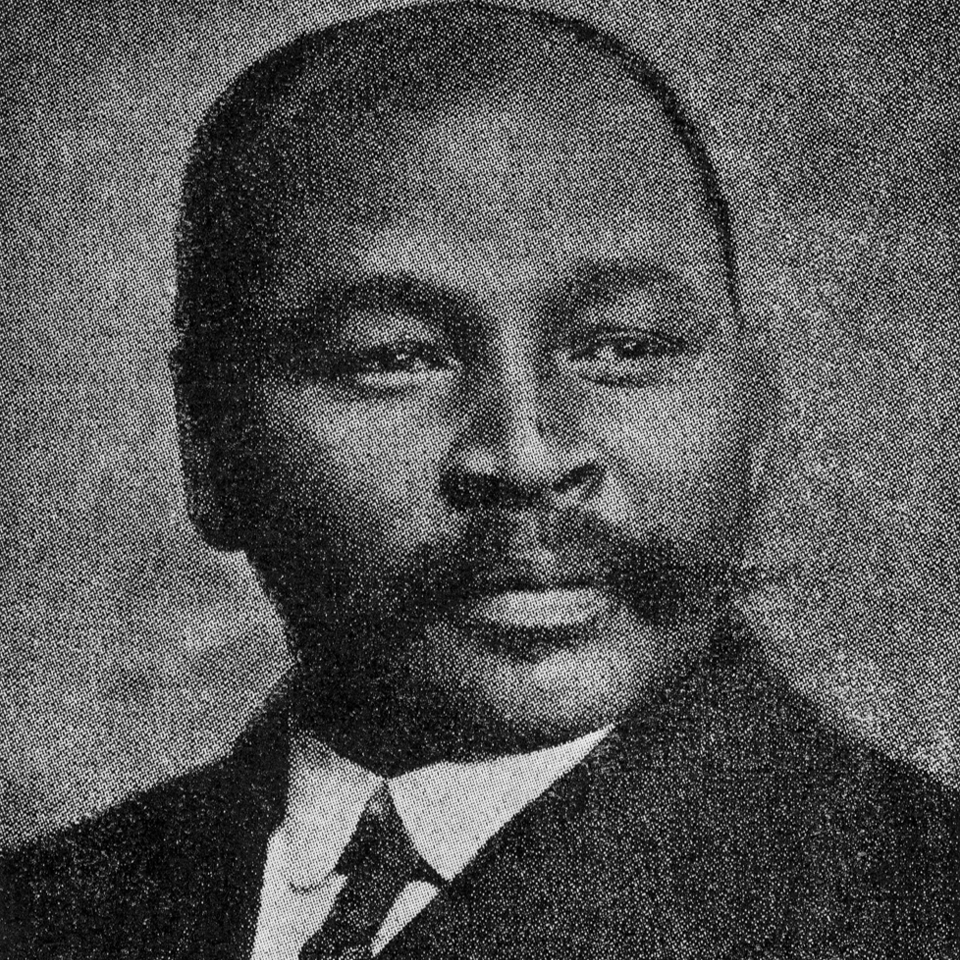
John Langalibalele Dube
John Langalibalele Dube (1871–1946)
John Dube was a multifaceted leader: an educator, politician, journalist, and the founding president of the South African Native National Congress (SANNC), which later became the African National Congress (ANC). Born on February 22 1871 in Natal, he was deeply influenced by American missionary education, especially Booker T. Washington’s emphasis on self-help and industrial education. In 1903, Dube founded the Ohlange Institute, a pioneering black educational institution. He championed African self-reliance and dignity, editing the first Zulu/English newspaper, Ilanga lase Natal. His legacy as a statesman and intellectual laid the groundwork for African nationalism and educational reform in South Africa.
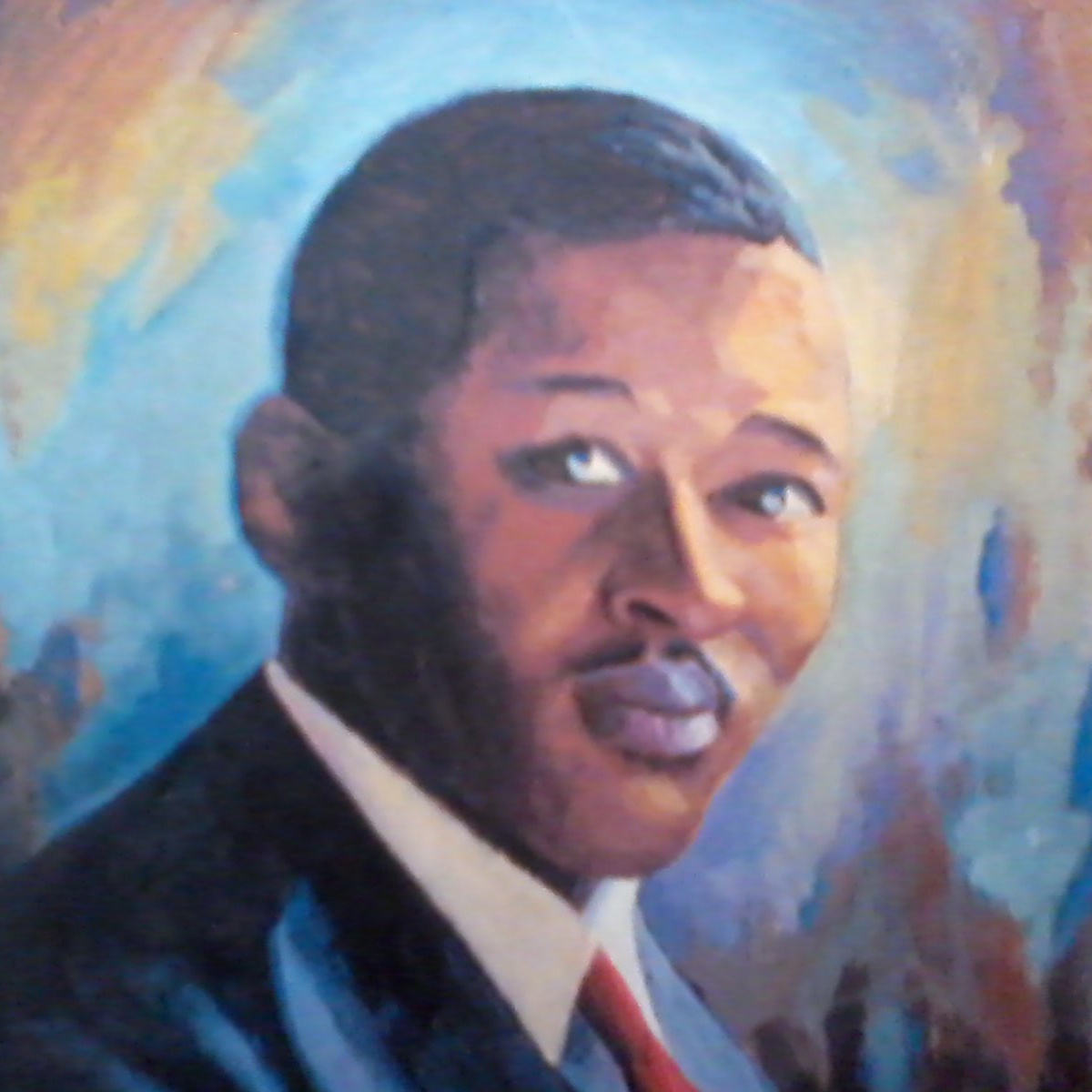
H.I.E. Dhlomo
H.I.E. Dhlomo (1903–1956)
Herbert Isaac Ernest Dhlomo was a South African writer, poet, and playwright, recognized as one of the pioneers of African literature in English. Born in 1903, Dhlomo's works often addressed themes of nationalism, tradition, and modernity. His play The Girl Who Killed to Save is among his notable contributions to African drama. Dhlomo's literary efforts were instrumental in laying the groundwork for subsequent generations of African writers. With classics like The Barren Woman, The Daughter and an Experiment in Colour Dhlomo’s work is a unique reminder of how the past is a good indicator of what to expect in the future. Experience all his work in immersive audio format that will truly make you listen to your imagination.
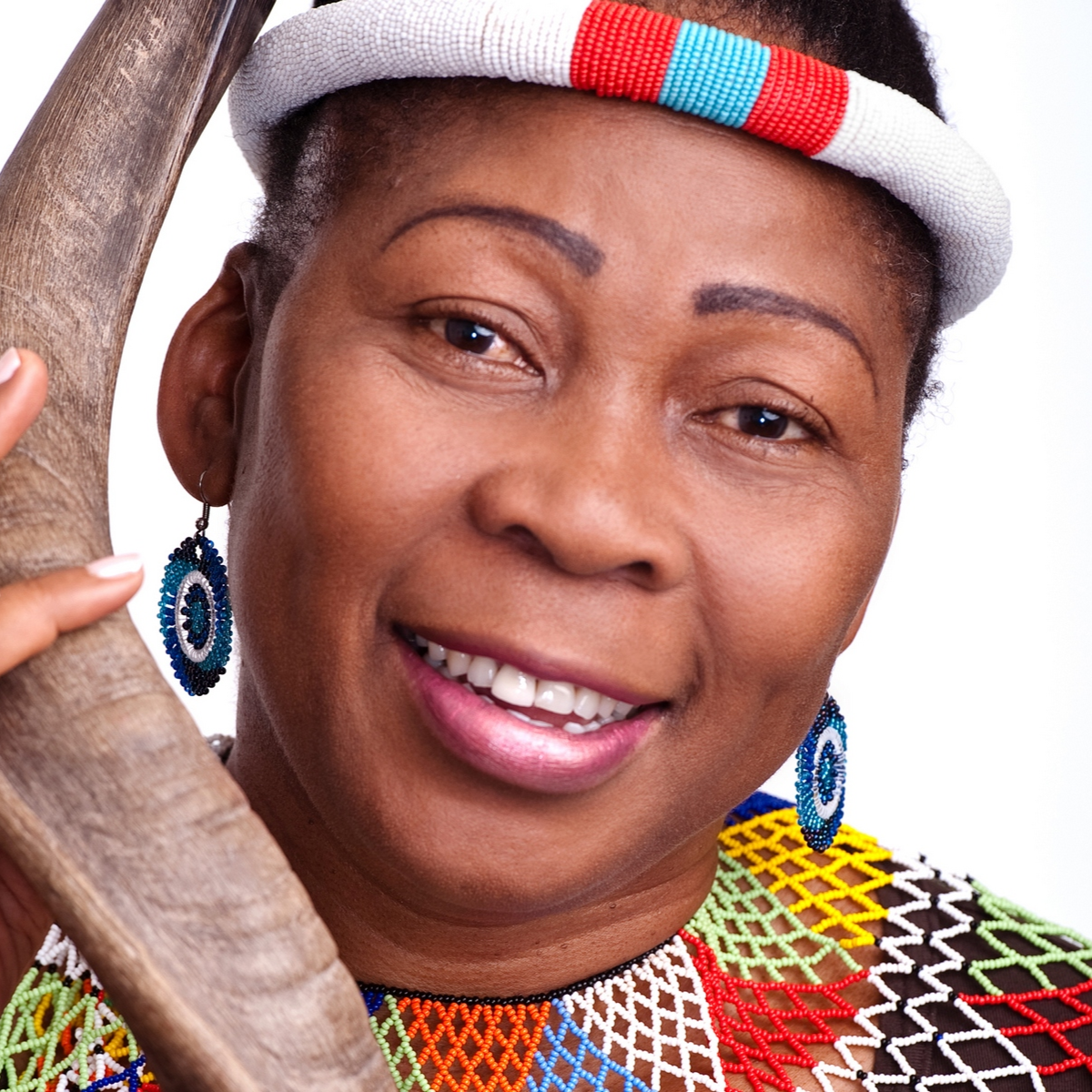
Gcina Mhlophe
Gcina Mhlophe (b. 1958)
Gcina Mhlophe is a renowned South African storyteller, playwright, poet, and actress. Born Nokugcina Elsie Mhlophe on October 24, 1958, in Hammarsdale, KwaZulu-Natal, she has been instrumental in reviving the oral storytelling tradition in South Africa. Mhlophe tells her stories in multiple languages, including English, Zulu, Xhosa, and Afrikaans, making her work accessible to diverse audiences. Her notable works include the play Have You Seen Zandile? The short story Sisanda’s Gift, which has received international acclaim. Beyond her performances, she is the founder of the Gcinamasiko Arts & Heritage Trust, dedicated to preserving African storytelling traditions.
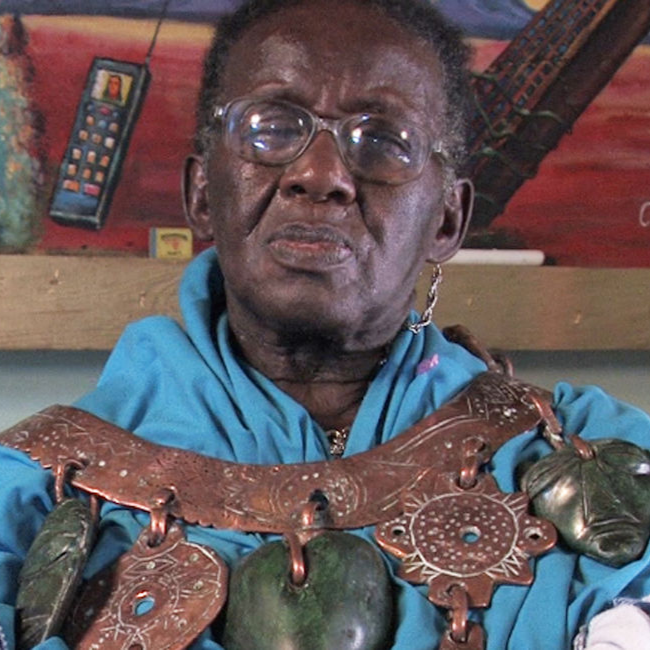
Credo Mutwa
Credo Vusamazulu Mutwa (1921–2020)
Credo Vusamazulu Mutwa was a renowned Zulu traditional healer (sanusi), author, and artist. Born in Natal, he was initiated into traditional healing and became a custodian of African mythology and spirituality. His influential works, such as Indaba, My Children (1964) and Africa Is My Witness (1966), blend African folklore, history, and prophecy, incorporating mythological storytelling with social commentary. Mutwa’s advocacy for indigenous knowledge challenged Western-centric narratives, making him both a controversial and revered figure. His work inspired spiritual renewal and cultural pride, offering a unique bridge between traditional wisdom and modernity. Unbeknownst to many, a lot of Mutwa’s work centres strong black-women characters like Ninavanhu-Ma, Watamaraka, Lulama-Maneruana, and little Celiwe, to name but a few.
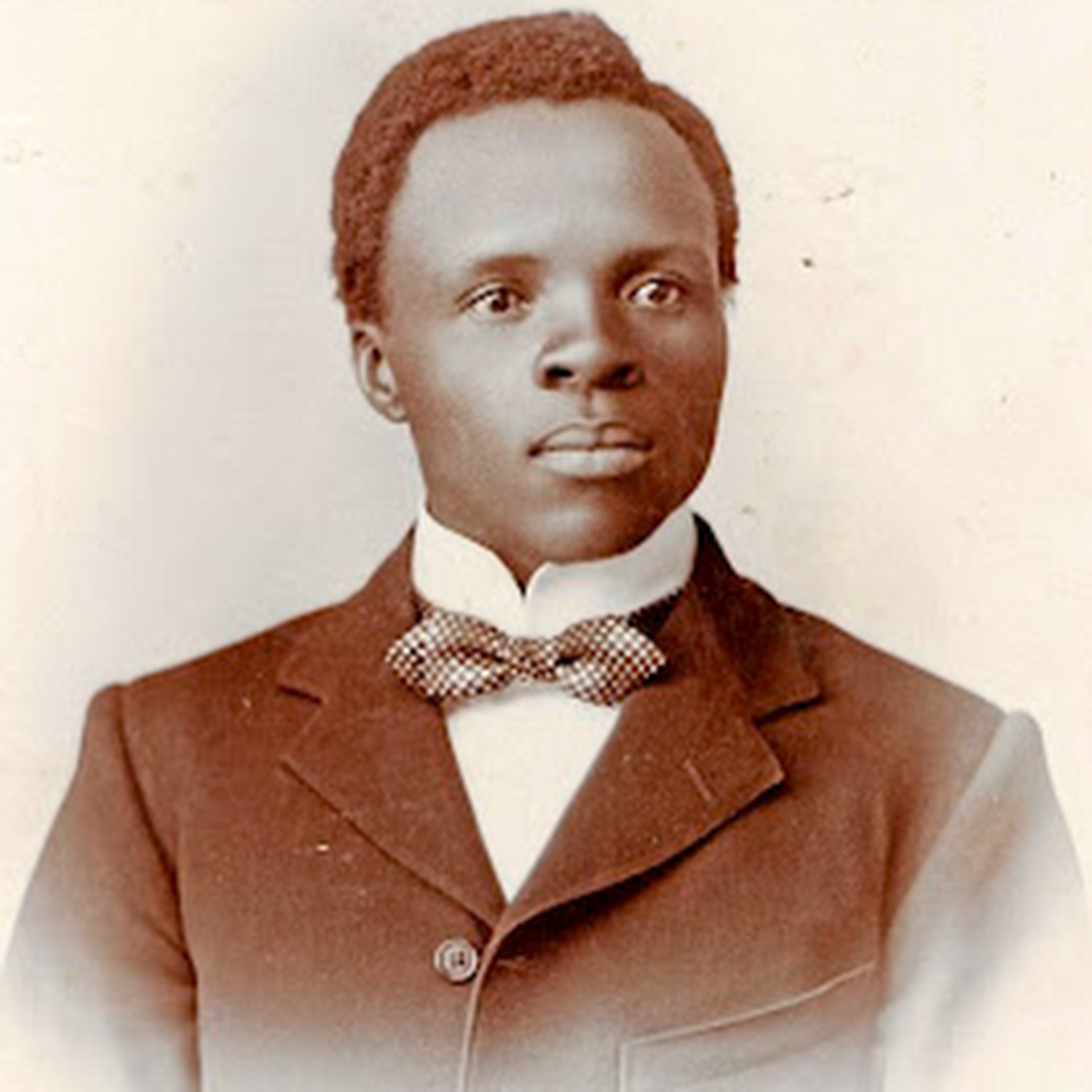
Sol Plaatje
Solomon Tshekisho Plaatje (1876–1932)
Sol Plaatje was a key South African intellectual, writer, translator, and political leader. Educated by missionaries, his linguistic skills led him to work as an interpreter, journalist, and editor. A founder and first Secretary General of the SANNC (later ANC), Plaatje fought for African rights and documented the impact of the 1913 Natives Land Act in his influential book, Native Life in South Africa (1916). He also wrote the novel Mhudi (1930), blending African oral traditions with Western styles, and translated Shakespeare into Setswana. Plaatje's dedication to equality and cultural identity significantly impacted South African history. As a novelist, Plaatje wrote Mhudi (published in 1930), a pioneering historical romance that blended African oral traditions with Western narrative techniques. He also translated Shakespeare’s plays into Setswana, bridging cultural divides and preserving African identity. Plaatje’s lifelong commitment to equality and cultural pride left an indelible mark on South African history. His work remains a testament to the power of language and storytelling in the fight for justice and dignity.

Mbe Mbhele
Mbe Mbhele (b.1993)
Mbe Mbhele is a contemporary South African writer, poet, and cultural critic. He is a co-founder of the Black Thought Symposium, an art collective that engages with black radical thought and artistic expression. His writings have been featured in publications such as Herri, Mail & Guardian, and Kalahari Review. Notably, his short story "Pendulums and Puppets" was published in Brittle Paper. Mbhele is also the author of the short story anthology Crazy Father and Other Very Short Lies. His work is characterized by a blend of personal reflection and critical analysis, often challenging societal norms and advocating for transformative change.
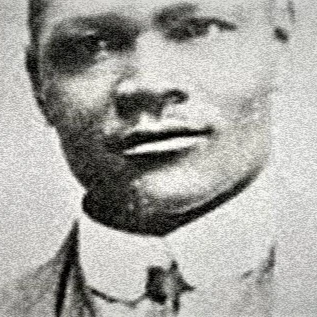
Thomas Mofolo
Thomas Mofolo (1876–1948)
Raised in a Christian household, he began his education under the guidance of missionary schools, notably attending the Morija Training College, where he earned a teacher’s certificate in 1898. Thomas Mofolo was a Basotho author, best known for his novel Chaka, which is a fictionalized account of the Zulu king Shaka's life. Born in 1876 in Lesotho, Mofolo wrote in Sesotho, and his works are considered foundational in African literature. Chaka (1925) has been translated into several languages and remains a significant work in the study of African literary traditions. Moeti oa Bochabela (1907) – The Traveller to the East: An allegorical tale reflecting a young African's journey towards Christian salvation, influenced by John Bunyan's Pilgrim's Progress. Pitseng (1910): A narrative exploring themes of love, marriage, and the clash between traditional African values and European Christian ideals. His works continue to be studied and celebrated for their profound exploration of African identity, tradition, and the complexities of cultural change. Mofolo’s work is both in Sesotho and English and is beautifully archived here.